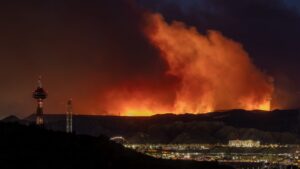Navigating Financial Recovery After a Wildfire: A Guide for Displaced Families
The devastating truth of natural disasters, such as wildfires, is an unfortunate reality faced by many, especially here in Southern California. The flames of the recent Los Angeles wildfires have left numerous families grappling with loss, uncertainty, and upheavel. For one of our dear clients, the heart-wrenching news came just an hour after the fires blazed—"We just found out our house is gone." Such moments are life-altering and demand swift and strategic financial action.
At Extreme Investor Network, we believe that while one must endure the emotional shock of such calamities, it doesn’t have to culminate in a financial crisis. Here’s a comprehensive framework to help you regain your footing and prepare for future uncertainties.
1. Safety First: Ensure Your Well-being and Seek Disaster Aid
The first step in recovery is to prioritize your safety and the safety of your loved ones. Once you’ve ensured everyone is out of harm’s way, it’s crucial to register for disaster assistance without delay. Organizations like the Red Cross and FEMA (Federal Emergency Management Agency) provide essential services such as temporary shelter, emergency financial aid, and emotional support.
Tip: Visit disasterassistance.gov to apply for federal aid or explore state-specific programs dedicated to wildfire recovery. Being proactive helps alleviate stress during an already challenging time.
2. Assess Your Financial Landscape
In the wake of such a disaster, understanding your financial position is crucial. Start by taking an inventory of your financial resources. Identify available savings, emergency funds, and any credit card limits that you might access for immediate needs.
Make a comprehensive list of your ongoing financial obligations, including mortgages, rent, and utility bills. This way, you can strategize your payments and investigate any potential options for deferring debts.
Unique Insight: Work with a financial advisor, if possible. They can help you create a structured plan tailored to your new financial reality while providing emotional support.
3. Adapt Your Spending and Budgeting Habits
With the shock of disaster settling in, it’s time to recalibrate your financial habits. Communicate with your financial advisor about your situation, so they can update your profile and assist with short-term liquidity or income needs.
Consider utilizing free budgeting tools to help manage your expenses.
- Prioritize necessary expenses: Focus on essentials like food, housing, and medication.
- Cut discretionary spending: Cancel non-essential subscriptions and defer large purchases to stretch your budget as far as possible.
Additionally, it might be wise to temporarily lessen your retirement contributions to build a financial buffer in the short term.
Extreme Investor Network Tip: By reaching out to utility companies and creditors early, you can often negotiate payment plans or request hardship assistance. Many creditors have disaster forbearance programs to help you navigate these difficult times.
4. Safeguard Your Credit
If you’ve lost personal documents like IDs or social security cards after a disaster, it’s critical to protect your credit. Consider placing a freeze on your credit at the three major bureaus to prevent identity theft.
Special Note: Use your credit card issuer’s app or website to freeze any cards not in your possession. This added layer of security can make a significant difference.
5. Begin Your Insurance Claims Process
The insurance aftermath can often be one of the most daunting tasks. Insurance claims may take considerable time to process, so starting sooner rather than later is paramount.
Make sure to request “additional living expenses” (ALE) coverage, which can help cover temporary housing, meals, and other critical costs.
Pro Tip: Maintain organized documentation of all damaged or lost items with as much detail as possible—photographs, receipts, and estimated replacement costs can significantly bolster your claim. If you encounter challenges with your insurer, consider hiring a licensed public adjuster to advocate on your behalf.
Recovering from a wildfire or any natural disaster is undoubtedly a significant challenge filled with emotional turmoil and logistical decisions. However, by taking decisive and informed actions, families can regain control over their financial futures. At Extreme Investor Network, we are committed to empowering you with the financial wisdom and resources necessary to navigate these trying times. You’re not alone in this journey—reach out to us for personalized support along your pathway to recovery.

